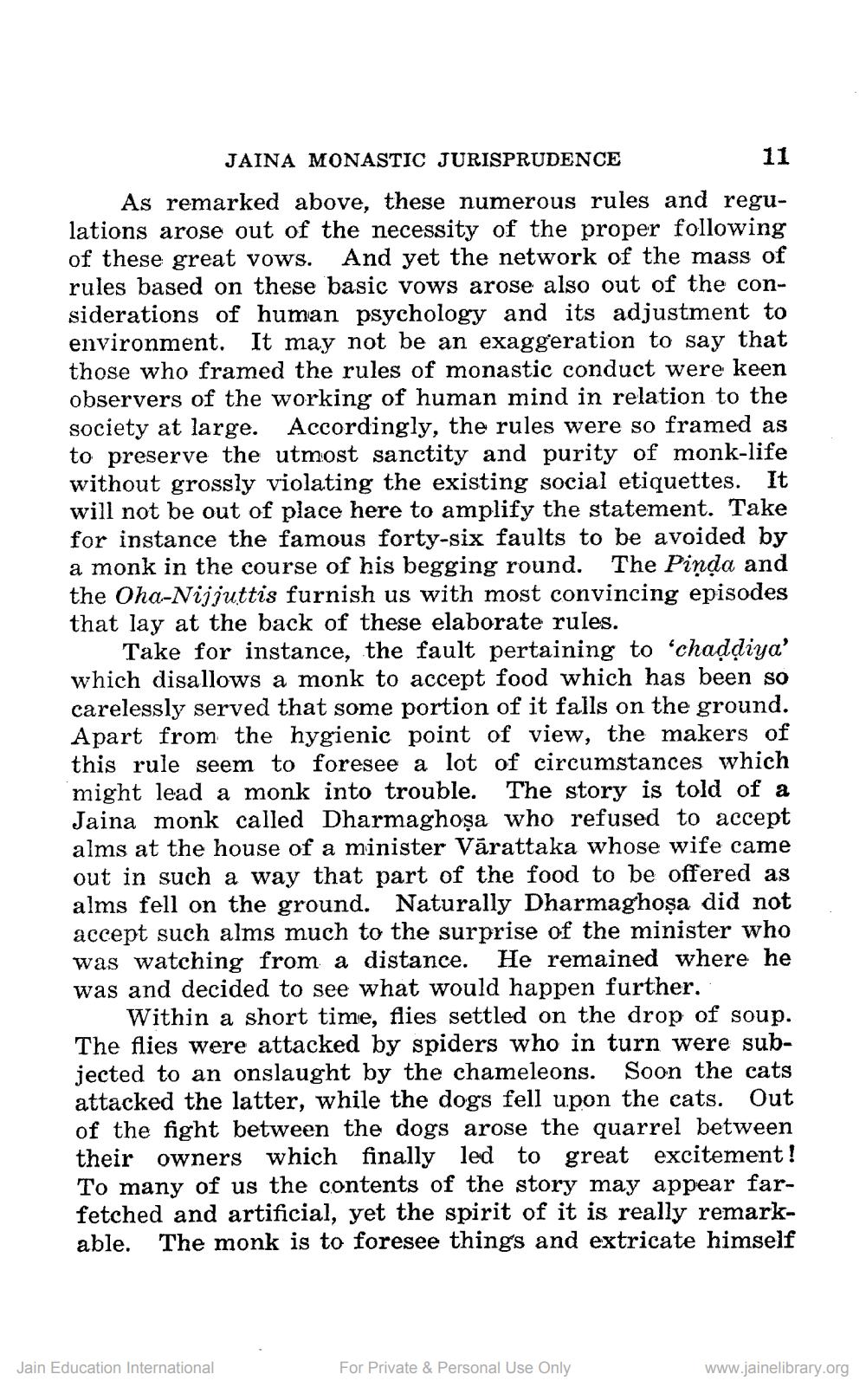________________
JAINA MONASTIC JURISPRUDENCE
11
As remarked above, these numerous rules and regulations arose out of the necessity of the proper following of these great vows. And yet the network of the mass of rules based on these basic vows arose also out of the considerations of human psychology and its adjustment to environment. It may not be an exaggeration to say that those who framed the rules of monastic conduct were keen observers of the working of human mind in relation to the society at large. Accordingly, the rules were so framed as to preserve the utmost sanctity and purity of monk-life without grossly violating the existing social etiquettes. It will not be out of place here to amplify the statement. Take for instance the famous forty-six faults to be avoided by a monk in the course of his begging round. The Pinda and the Oha-Nijjuttis furnish us with most convincing episodes that lay at the back of these elaborate rules.
Take for instance, the fault pertaining to 'chaḍdiya' which disallows a monk to accept food which has been so carelessly served that some portion of it falls on the ground. Apart from the hygienic point of view, the makers of this rule seem to foresee a lot of circumstances which might lead a monk into trouble. The story is told of a Jaina monk called Dharmaghoşa who refused to accept alms at the house of a minister Varattaka whose wife came out in such a way that part of the food to be offered as alms fell on the ground. Naturally Dharmaghoșa did not accept such alms much to the surprise of the minister who was watching from a distance. He remained where he was and decided to see what would happen further.
Within a short time, flies settled on the drop of soup. The flies were attacked by spiders who in turn were subjected to an onslaught by the chameleons. Soon the cats attacked the latter, while the dogs fell upon the cats. Out of the fight between the dogs arose the quarrel between their owners which finally led to great excitement! To many of us the contents of the story may appear farfetched and artificial, yet the spirit of it is really remarkable. The monk is to foresee things and extricate himself
Jain Education International
For Private & Personal Use Only
www.jainelibrary.org




